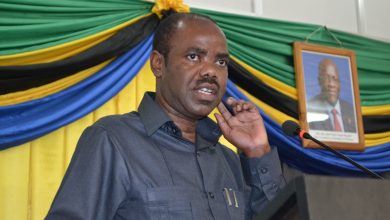Tanzania charts course for global sustainable skies

DAR ES SALAAM: THE aviation industry is one of the world’s most dynamic and interconnected sectors, driving trade, tourism, cultural exchange and economic growth. It spans air transport for passengers and cargo, aircraft manufacturing, airport operations, maintenance and repair services, air navigation and numerous support industries.
Across the globe, governments, airlines and researchers are racing to balance growth with responsibility ensuring aviation thrives without jeopardising the planet’s future.
For Tanzania, aviation is more than just a mode of transport. It is a strategic lifeline for economic growth and regional integration. With a young population, expanding infrastructure and recognition on the European aviation safety list, the country is uniquely placed to align with global sustainability trends while carving out its own leadership role in Africa. Yet, the sector stands at a crossroads.
Sustainability, innovation and education must converge if the country is to secure its place in the global skies. To remain competitive, experts say the country must strengthen human capital, embrace new technologies and adopt greener practices.
At the recent signing of a Memorandum of Understanding (MoU) between Aerotechnics Tanzania and the National Institute of Transport (NIT) in Dar es Salaam, international and local leaders highlighted both challenges and opportunities ahead. Prof Gabriel Tilman, ViceChancellor of the African Aviation and Aerospace University (AAAU), underscored the urgency of climate responsibility.
He noted that aviation already accounts for about two per cent of global emissions, a figure likely to rise without swift action. “The next 25 years will be decisive,” said Prof Tilman.
He said the transition to Sustainable Aviation Fuels (SAF) is inevitable and the rise of artificial intelligence will transform the industry even further.
ALSO READ: EU envoys praise Kilimanjaro project impact
“To navigate this future, we need not just engineers to maintain aircraft, but academic leaders to drive the industry forward,” AAAU Vice-Chancellor said. Beyond sustainability, he pointed to human capital as the industry’s greatest bottleneck, with global demand for aviation engineers projected to reach 800,000 by 2035.
He urged Tanzanian institutions like NIT to expand aviation focused bachelor’s and master’s programmes that blend technical licensing with academic training—developing not only skilled engineers but also executives and innovators to lead Africa’s aviation sector. Tanzania’s aviation industry continues to grow.
Between July 2024 and March 2025, more than six million passengers used air transport, an 18.8 per cent increase from the 5.08 million passengers recorded during the same period a year earlier.
Minister for Transport Prof Makame Mbarawa told Parliament in May that the rise reflects growing confidence in the country’s air transport system, driven by infrastructure investments and international visibility.
“This growth is a result of ongoing infrastructure improvements and increasing demand from both domestic and international markets,” he said.
Prof Ian McAndrew of the International Space University and a board member at Aerotechnics, said the momentum must be matched by a forward-looking education system. He projected that broader transport trends ranging from autonomous vehicles to drone technologies will reshape economies over the next 15 years.
He argued that the country must widen access to education, combining university degrees with non-university training for adults, supported by partnerships with international institutions offering dual degrees and professional recognition.
“With the right investment in training and academic programmes, the country could play a pivotal role in the fast-growing global space sector,” Prof McAndrew said.
He noted that Tanzania’s geographic position near the equator provides a natural advantage for satellite launches, similar to Cape Canaveral in the US and French Guiana in South America. On the ground, he added, Africa urgently needs a centre of excellence to manage autonomous technologies responsibly and Tanzania’s institutions are well placed to lead.
“The climb is steep, but the summit promises extraordinary achievements,” he concluded. Local stakeholders echoed the call for stronger capacity-building. Aerotechnics Limited Chairman Jared Ajwanga said the initiative with NIT focuses on creating a future-ready aviation ecosystem that empowers students and positions Tanzania as a hub for aviation, drone technology and aerospace innovation.
“Our goal is to ensure graduates meet international standards by enhancing skills and fostering innovation for a sustainable aviation sector,” he said.
ALSO READ: Kenyan firm ordered to pay over 900m/- to NSSF
The collaboration will give students access to globally aligned training programmes, a modernised curriculum, hands-on experience and placement opportunities with airlines and Original Equipment Manufacturers (OEMs). It will also allow NIT to be recognised as part of the globally accredited Part-147 training institutions.
NIT Rector Dr Prosper Mgaya said such partnerships promote knowledge exchange and help ensure the country’s aviation industry meets international standards.
“Partnerships like this are essential to advance the aviation industry and ensure it meets international standards,” he said.
For students, the benefits are already tangible. NIT graduate Nathanael Daniel said the initiative helped him secure practical training in Kenya, which will enhance his skills and contribute to Tanzania’s aviation growth.





